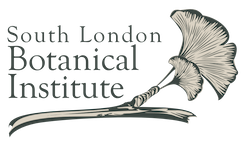
- This event has passed.
Botany for Gardeners 9 – Urban Botany: Invasive non-native species?
Wednesday, 6th July 2022, 18:30 - 20:00

The history of a city, and the science behind its plants
Week 9: Urban botany: the history of a city – and ‘what are invasive non-native species?’.
We often hear the word invasive today. But what does it mean? To scientists, it has a very different meaning to the gardener. Urban areas are rich in wild plants, some native and others introduced by humans – what does their presence tell us about the history of a city and the wider environment?
Photo: https://morethanweeds.co.uk/
Understanding how plants work will help you become a better gardener! In this 10-part series of online talks, Dr Mark Spencer will cover everything from the evolution of plants to the importance of wild plants in sustaining future human life today.
Dr Mark Spencer is an experienced and internationally respected botanist. His expertise covers many disciplines including forensic botany, the plants of North-west Europe, invasive species and the history of botanical science. He also works globally as a seasoned writer, public speaker and television presenter.
Topics include plants’ love affair with fungi and bacteria, biogeography, centres of floral diversity, structural plant forms, adaptation, reproduction, plant breeding and invasive species in our cities.
Mark Spencer’s huge plant knowledge and dynamic teaching style should ensure that this is another of his SLBI series not to be missed, whether you’re new to gardening, an experienced gardener or just interested in learning more about plants.
Sessions can be booked individually but we’d recommend booking the whole series prior to 2nd March to get maximum learning.
Tickets: £10 members/£12 non-members
Please book via the Eventbrite ticketing system here
